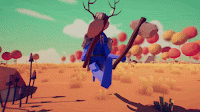A while back we looked at a Star Wars book which looked to recap an older era, but drove me away from it. Specifically, it had an introduction so terrible that it made me give up on the book within the first few pages. However, I promised an alternative to that, and this is the result. Star Wars Interviews: The Original Trilogy and Expanded Universe is just that, it's a collection of interviews focusing on the initial film and the later Expanded Universe. While simple, it's a definite success in that it not has a very energetic structure, but it is often enough to make you want to go back and revisit older products.
Let's get into the how and why.
The Good
One of the major problems when it comes to these sorts of books is simple: They often run the risk of repeating information. You can probably think of any number of interviews from Star Trek, Blake's 7 or Babylon 5 where stories are repeated due to a few basic questions which keep cropping up. While this book could have easily fallen into that pit trap, it instead manages to avoid it entirely. Much of this is down to how Dennis Pellegrom allows those he approaches to speak with any degree they feel comfortable with, and to discuss events to their heart's content. More than that, however, he also has a habit of approaching subjects in a way which encourages people to talk far more.
The benefit of this style of questioning others is evident from the very start, where Anthony Daniels goes into more substantial detail about certain areas than you might expect. The big ones which stand out range from promoting breakfast cereal to working with Jim Henson in that case. While some of these have been delved into before, new stories either crop up while discussing them or they're approached in such a manner that it feels engaging. It helps that Pellegrom also uses notes via brackets to help better flesh out the interview, with reactions or minor details to give each question or reaction much more life.
However, beyond this, there is also the variety of people that the book approaches and covers which works in its favour. We've seen Harrison Ford, Mark Hamill, and the main cast interviewed many times in previous works. This book also dives into a variety of other individuals who played more minor parts, such as those responsible for behind the scenes work in the films or playing aliens in the famous Mos Eisley Cantina scene. Each has a surprising amount of information to them, and it really helps to offer substantially more insight into what it was like working to bring each film to light.
Of course, in addition to the actors, you also have the Expanded Universe side of things. Honestly, having Jason Court and Shannon McRandle being interviewed was a brilliant surprise in each case, shedding light on the roles of Kyle Katarn and Mara Jade respectively. The nature of playing each character, the direction taken while playing the figures and then their later lives is made to be just as engaging as the film actors. While most books would normally stick this in at the end as a sort of (and here's this) bit at the finale, they are instead treated with the same respect and detail as anyone else in the book. Given the treatment the Expanded Universe has been given over the past few years, that's a very welcome change.
The Bad
One major make-or-break point within the book lies with the style of each interview. Many of these have a much more conversational format than you might expect, and they play out with more substantial answers. As such, it's less of a typically rigid structure and more of a back-and-forth between two people at many points. For some, this will be quite engaging, as it comes across as more human and much more interesting in the form of their answers. For others, this lack of formality might seem like it's taking some time away from what you're here for. It never seems as if Pellegrom is trying to take over the interview himself, but it is worth looking at a preview first.
Another point is that this book is fairly direct in its structure. It openly advertises itself as an interviews book and that's really what you get, besides for one or two paragraphs introducing the actor or creator in each one. While this might sound obvious, in more than a few cases (both with magazines and websites) a few writers tend to beef this out with more information or flowery text to make it seem more impressive. This is another one where your mileage may vary, but it can come across as very minimalist in its design, and that can be offputting.
A final point is that this is written with fans in mind first and foremost. You can see this in the questions, from how Pellegrom refers back to ideas and elements which are more familiar to dedicated Star Wars fans than anyone else. These are typically minor points (like Anthony Daniels' column in Star Wars Insider) but it is something you need to keep in mind. There just might be the odd bit that will throw you off somewhat if you are primarily familiar with this franchise for its films.
The Verdict
Overall, Star Wars Interviews: The Original Trilogy and Expanded Universe Vol. 1 is a book that I can definitely recommend. Even if you're someone who typically avoids these film companion pieces, or doesn't see their value, this one is a definite must-buy. It's really a book which not only helps to seriously shed light on some prior events within a major franchise but, even if you're an old hand who has seen these interviews before, there's always something new in each of them.
Verdict: 9 out of 10
















